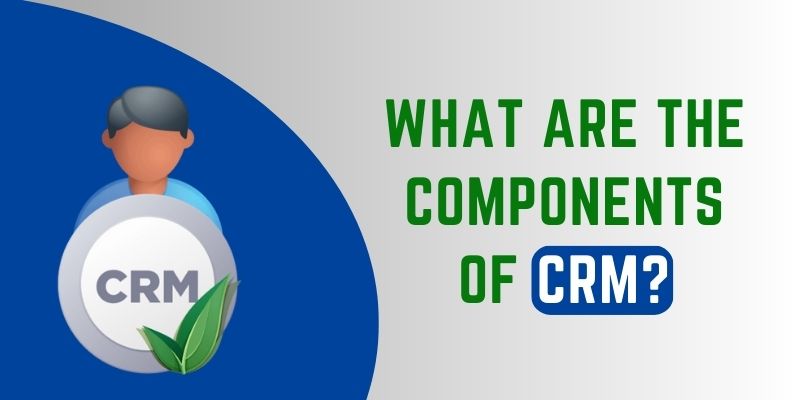CRM is an essential strategy and set of procedures businesses use to manage and improve their interactions with current and potential consumers. Its main objectives are understanding client demands, raising customer happiness, and fostering customer loyalty and retention. A robust CRM system combines several elements to optimize and streamline the client lifecycle. This blog will explore “What are the Components of CRM?” To learn CRM, join Microsoft Dynamics CRM Training in Chennai at FITA Academy and learn every aspect of CRM.
Customer Data Management
The efficient administration of client data is the foundation of CRM. To do this, information about the client must be gathered, saved, and organized. This information includes contact information, purchase history, preferences, demographics, and interactions across numerous connections. Modern CRM systems use centralized databases or cloud-based platforms to securely store this data securely, ensuring quick access and synchronization throughout the organization.
Sales Automation
Businesses can streamline and optimize their sales processes using CRM, an essential part of sales automation. This involves automating repetitive processes like follow-ups, sales pipeline management, lead nurturing, and generating. CRM systems assist sales teams in identifying chances for cross-selling and upselling, tracking customer interactions, and prioritizing prospects. This improves efficiency and conversion rates.
Marketing Automation
CRM solutions offer marketing automation, which lets companies automate and tailor marketing campaigns based on information about their customers’ preferences and behaviour. Businesses can provide focused and relevant marketing messages through email marketing, social media, and other platforms by categorizing their clients into several groups. Additionally, marketing automation helps monitor campaign performance, enabling ongoing development and increased ROI.
Customer Service and Support
Building solid customer connections requires offering outstanding customer service. CRM systems provide resources for handling support issues, client queries, and concerns. They enable support personnel to easily track and address client issues, resulting in a satisfying customer experience. Additionally, CRM systems can include self-service features that enable clients to locate solutions on their own, like knowledge bases and FAQs.
Analytics and Reporting
CRM platforms have robust analytics and reporting tools that provide insightful data on customer trends, preferences, and behaviour. Businesses may make informed decisions, pinpoint areas for improvement, and create focused plans to improve customer happiness and retention by analyzing data from numerous sources. CRM statistics are also helpful in assessing the success of marketing and sales initiatives. You can join Microsoft Dynamics Training in Chennai to learn every CRM statistic and succeed in Marketing and sales.
Collaboration and Communication
A flawless customer experience depends on team members’ effective communication and coordination. CRM systems frequently have features like task management capabilities, team collaboration tools, and real-time chat. These capabilities make cross-functional communication possible, allowing sales, marketing, and customer service teams to cooperate effectively and deliver consistent customer experiences.
Customer Engagement Tools
CRM systems provide a range of options to encourage customer loyalty and involvement. These resources could include customer satisfaction surveys, consumer feedback channels, and loyalty programmes. Businesses may strengthen their bonds with customers, gather insightful feedback, and enhance their goods and services to better meet customer demands by actively engaging with them.
Mobile CRM
For sales and support personnel, having mobile access to CRM data is essential in today’s mobile-first environment. Teams may access client data, handle tasks, and engage with customers using mobile CRM programs on smartphones and tablets. This adaptability enhances productivity in general and response times.
Security and Privacy
With the increasing importance of customer data, security and privacy are important. CRM systems must adhere to robust security measures to protect customer information from unauthorized access, data breaches, and cyber threats.
A comprehensive CRM strategy incorporates multiple components to effectively manage customer relationships and deliver exceptional customer experiences. If you want to learn every component of CRM, join Microsoft Dynamics CRM Training Institutes in Chennai and manage customer interactions, sales, marketing, and services. Businesses can build long-lasting relationships by leveraging customer data, automating sales and marketing processes, providing excellent customer support, and employing analytics.

